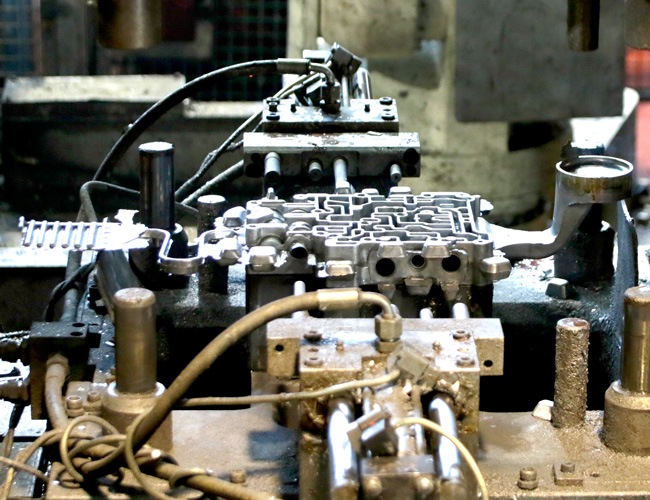Our core products are housings for steering systems, whereas smaller parts of our capacity are dedicated to manufacturing parts for automatic transmission, housings for vacuum pumps and clutches, engine mounts and parts for anti-vibration systems. Our production for the heat engineering market is in continuous expansion.
The material used is aluminium, alloyed with other chemical elements such as silicon and copper. The alloys most frequently used are EN AB 46000, EN AB 46100 and EN AB 47100, which differ from one another in the concentrations of the elements in the alloy. The raw material undergoes strict controls, to verify that it presents the correct chemical composition.
The choice of the type of alloy influences the characteristics of the material and those required of the product when in use, such as, for example, its castability, ductility, resistance to corrosion and mechanical resistance.



